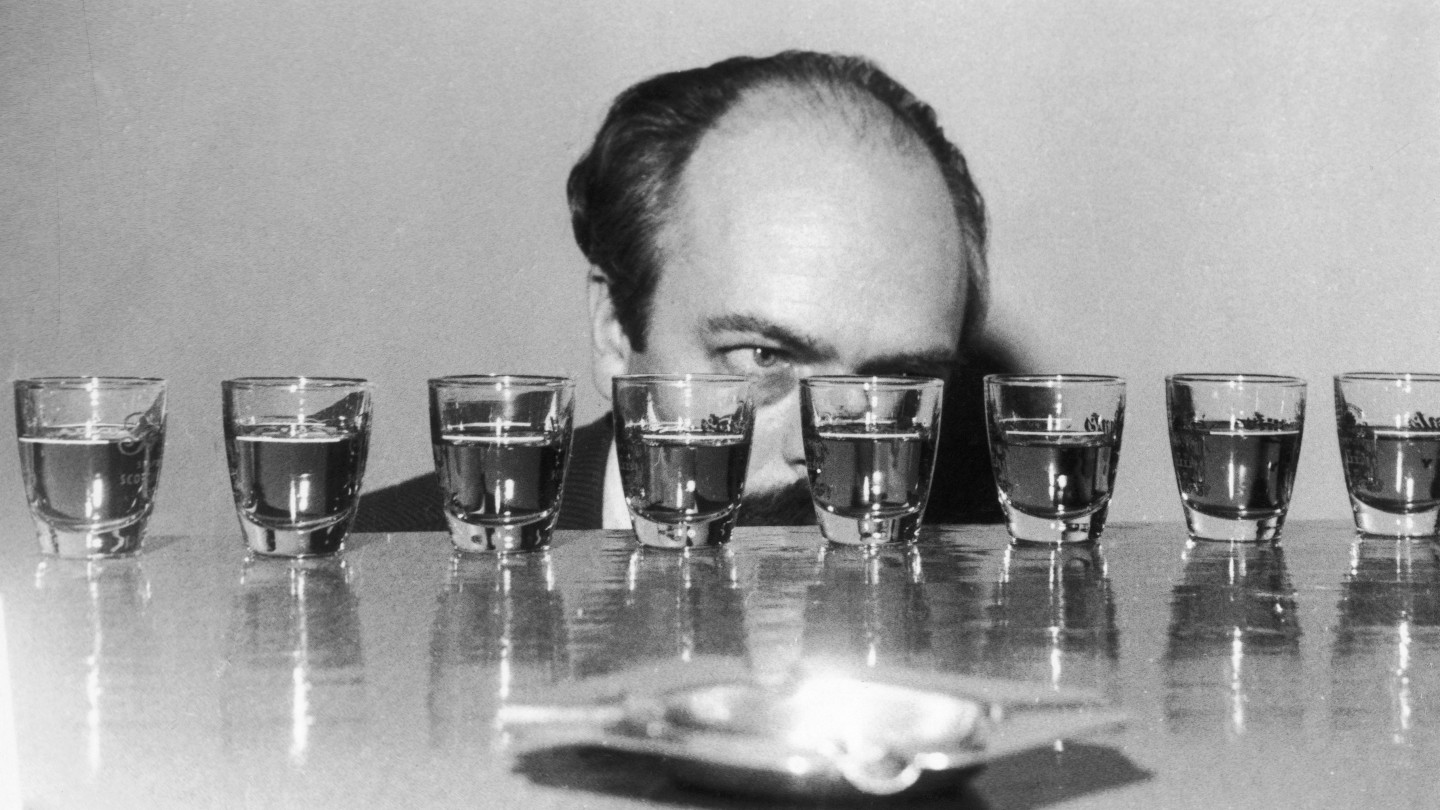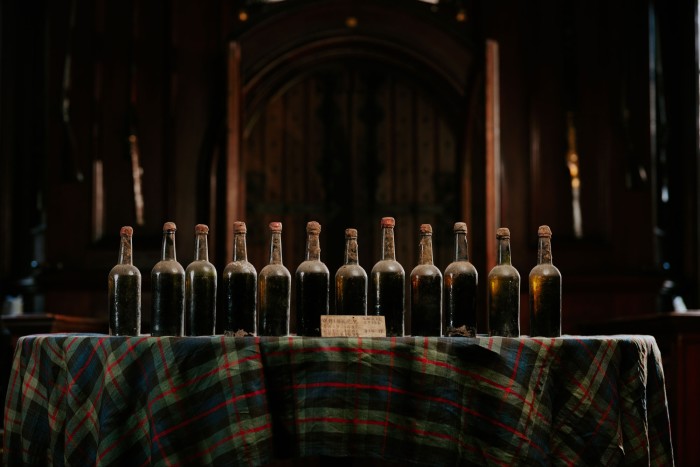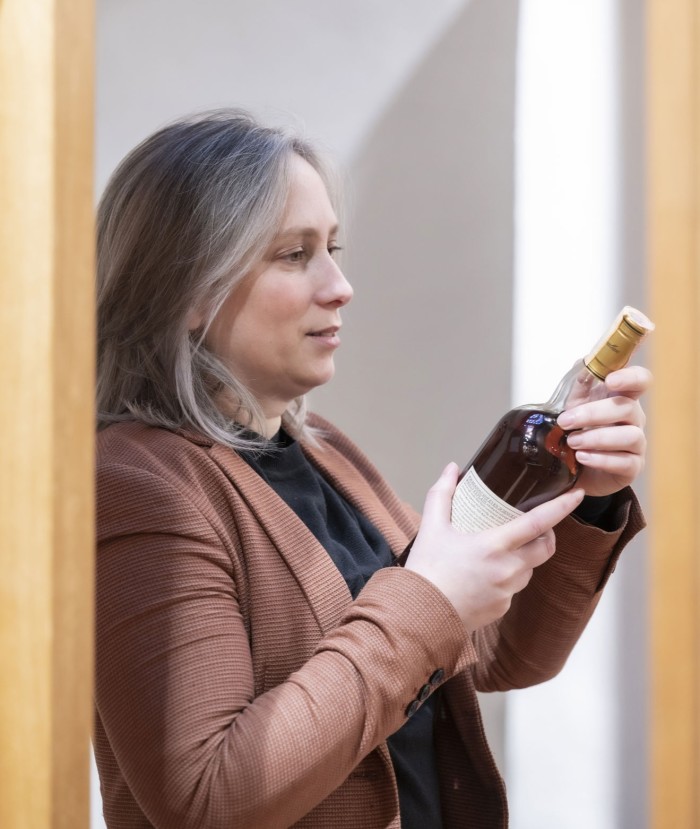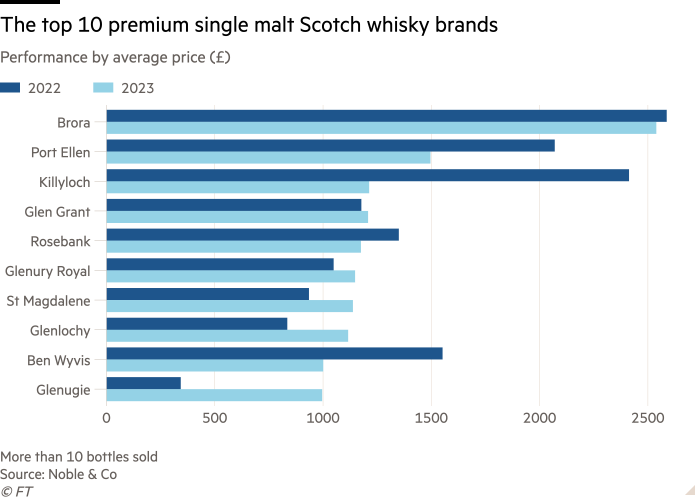On the trail with the whisky detectives

Roula Khalaf, Editor of the FT, selects her favourite stories in this weekly newsletter.
“World’s oldest whisky found in Scottish castle to be auctioned” read the Whisky Auctioneer release sent out to press late last year, following the discovery of a stash of whisky in the cellars of Blair Castle in Perthshire. Distilled in 1833, and reputedly sipped by Queen Victoria, these 40 bottles (24 of which were up for auction) were some of the oldest and most historic whiskies ever to come up for sale.
Almost as soon as the release hit the newswires, though, it began being picked apart. The whisky’s age, it turned out, had largely been surmised from a placard found near the bottles. Carbon dating had only confirmed the “possibility” of it being early-19th century. The fill level of the liquid in the bottles didn’t look quite right; some had an abv that was suspiciously high. Had they been topped up over time? (This was acceptable practice back in the day – but if this was the case, it needed to be explained.) A historian argued that the Queen Victoria story, alas, was also unlikely. Whisky Auctioneer revised its language to be much more speculative.
There was no suggestion of tampering or deception here – only wishful thinking. The whiskies were clearly old, but perhaps not quite as old as the sellers wanted them to be.

“For too long the industry has been marking its own homework,” says whisky expert Isabel Graham-Yooll. “I’m not saying people are being dishonest for the most part, but far too often the depth of research isn’t there.”
Graham-Yooll knows the rare whisky market better than most – she was auction and private client director of Whisky.Auction, which is owned by The Whisky Exchange, for seven years. Before that she was a spirits buyer for whisky specialist Milroy’s, and also set up the spirits department for fine wine trading platform Bordeaux Index.
Her new company, Wisgy, is the first whisky consultancy to offer wholly independent advice to whisky collectors: “We offer a suite of services ranging from authentication and valuation of bottles through to advice on buying casks and building your collection.”

Unlike other companies in this space, Wisgy doesn’t buy or sell any whisky itself – so its advice is far less likely to be influenced by an ulterior motive. “It’s great there’s finally an independent authentication for spirits,” says Berry Bros & Rudd’s commercial manager for spirits, Sam Philipps. “It’s long overdue.”
The process of authenticating a bottle is complex, says Graham-Yooll, “so I will be working with a pool of experts ranging from distillers, valuers and collectors to crime agencies and fraud specialists.” Techniques such as carbon dating and chromatography have their part to play in authentication, she says, but they need to be tempered by experience. Some of the experts she’s working with will be coming out of retirement, and many worked previously in the trade. “Often what you want is that person who was around when that whisky launched, or who was the person who actually distilled or bottled it,” she continues. “They’ll say something like, ‘Oh yes, I remember they printed too many labels for that whisky, and sold off the remainder [which would never happen today] which explains why it’s the right label but on the wrong bottle; or because of a printing glitch a few dozen labels had the wrong abv on them.’ One might say: ‘That capsule looks a bit loose, or that distiller only ever did that whisky as a 10-year-old – a 12-year-old never existed.’ Often the company themselves don’t have records and these are the only people who actually remember it. You also need that network to establish who you’re buying from and what their track record is.”
Dr Nick Morgan – formerly head of whisky outreach at Diageo and author of A Long Stride, the definitive guide to Johnnie Walker – will be one of Wisgy’s expert witnesses. A protagonist in the creation of Diageo’s sought-after Special Releases series, Morgan has spent a lifetime working with some of the world’s most collectible Scotch whiskies. (An academic by training, he also wrote a forensic critique of the Blair Castle case that makes for a great read.)

“The rapid growth of the secondary market for whisky over the past 10 years has seen many businesses employ relatively inexperienced staff to help with the authentication of old and rare bottles, and there has been a similar growth of shouty, self-styled experts in the world of whisky social media,” says Morgan. “On the one hand expertise has been democratised, on the other it has been severely diluted and diminished. Wisgy offers the hard-won knowledge and experience of genuine industry veterans, learned over decades in the heart of the industry.”
Graham-Yooll’s nose for a fake has helped lead to the arrest of whisky fraudsters and criminals, including one who had amassed a bogus collection worth tens of thousands of dollars. But while counterfeits may grab the headlines, she says, whisky theft is actually the bigger problem. And as a consequence, Wisgy also offers the trade alerts on stolen, as well as fake, whiskies known to be in circulation.
“A lot of the time, though, what clients are seeking is reassurance,” she says. “For example I’ve got one person in the States who has 12 beautiful whiskies and a person in the UK I know would love to buy them, and they don’t know each other, and I’m basically there to say, ‘Trust each other, you’re both fine.’” (Fees are POA, but you can expect to pay around 10 per cent on a successful transaction.)
The number of bad actors is small, she says – but it’s still a case of caveat emptor. “Never buy bottles from social networking sites,” she says, “it’s the equivalent of buying off a bloke in the pub! Always buy spirits from reputable sellers that are authorised to sell alcohol and have strict anti-fraud measures in place. And do your research,” she adds. “At the very least, look at past prices and compare bottles with ones that you know to be genuine – some of this can be done online. Or pay someone else to do that for you.”
And remember that old adage: “If it looks too good to be true, then it probably is.”
Comments